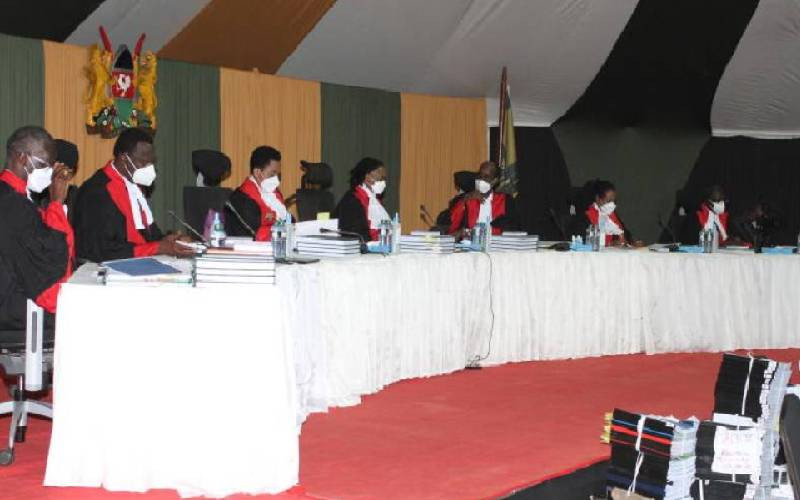×
The Standard e-Paper
Join Thousands Daily

After the August 9 general elections, dissatisfied parties had seven days to file petitions challenging the outcome. This ended on Monday, August 22.
The Supreme Court of Kenya, which is at the apex of the Judiciary and with the final authority in arbitration of disputes in the country, received nine petitions by close of the seven-day window.